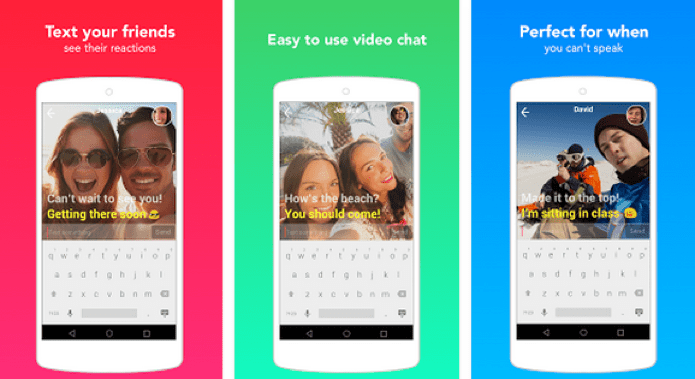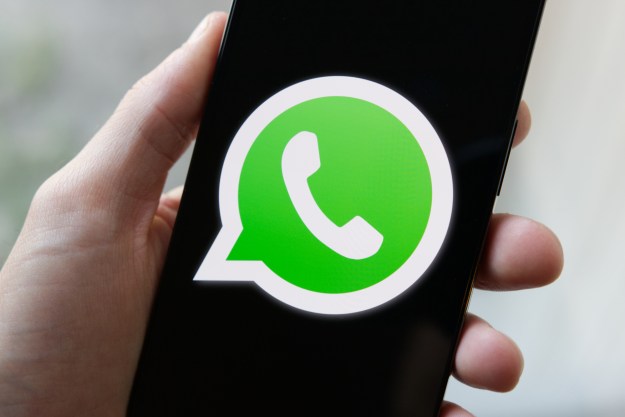
Livetext, as the imaginative name suggests, is a blend of instant chat and FaceTime-style video (Yahoo describes as “live video texting”). Once you and a partner agree to establish a connection, the session streams from your phone’s front-facing camera footage, alongside which which you can type messages in real time. But unlike Periscope, Meerkat, and virtually every other video messenger out there, Livetext mutes all audio.
The reason, product manager Arjun Sethi told The Verge, is to help “create the emotional connection” and to “make sure you can get into a conversation as quickly as possible.” According to Yahoo’s research, audio during video chat is one of the biggest reasons people don’t use it often. The sound is disruptive, which confers social pressure — “it feels like you need to make an appointment,” Yahoo’s Adam Cahan told TechCrunch. Remove that distraction and people feel at ease, or at least comfortable video messaging at times and in settings they normally wouldn’t.
Yahoo’s hoping Livetext’s ephemerality and intimacy differentiate it from a crowd of well-established competitors. Livetext borrows pages from some of them — messages and videos from sessions are deleted once the app is closed, a la Snapchat — but Yahoo insists that its potential for growth lies in its uniqueness. “We didn’t want to create a derivative product,” Sethi told TechCrunch. “We wanted to create a brand new way of communicating.”
Despite that grandiosity, the Yahoo’s realistic about Livetext’s prospects. The service launched in limited beta in Hong Kong and Thailand earlier this month, and won’t incorporate any form of advertising before it “gets to scale,” Cahan told The Verge. That slow-and-sure approach is probably for the best — Livetext’s closest competition, Snapchat, has hundreds of millions of users. Messaging kingpins WeChat, Line, and WhatsApp have bases numbering north of 400 million. It’ll be a while yet before Yahoo begins to close those gaps.
Livetext launches tomorrow for Android and iOS.
Editors' Recommendations
- Google Messages vs. Samsung Messages: Which app should you use?
- How to turn your old phone into a security camera
- This app put iMessage on my Android phone — and it blew me away
- It’s finally happening — your iPhone is getting RCS in 2024
- One of our favorite Android phones just got its own iMessage app


